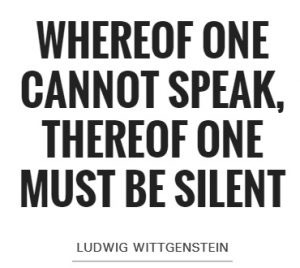EulogyIII

This weekend, friends will gather to celebrate our dear departed friend III's (pronounced "Three's") life. My eulogy: ©2018 by David A. Schmaltz - all rights reserved
Viennese Philosopher Ludwig Wittgenstein attempted to define, in seven dense statements, what one can say to be true about this world. As part of the group that delineated the unforgiving terms of engagement in the Boolean computer age, Ludwig helped determine exactly what III spent much of his life enforcing. More than anyone I ever met, he attempted to police that narrow, mysterious territory between what we desire our machines to do for us and what we as humans could reasonably expect our machines to do. Deeply understanding this man/machine interface, III mostly chose to avoid personally relying overmuch upon machines to deliver him from even tedium. He seemed to deeply mistrust the most modern technologies, and perhaps wisely so.
He owned no smart phone. He preferred landlines. Just call 415-TANTRUM. He preferred snail mail over any electronic analogue. He was never anybody’s Facebook friend. He preferred face-to-face friends and printed books. He refused to be photographed and deliberately missed the pivot to video. Yet his presence in a room of technologists never failed to prove anything less than transformative. He seemed to be able to suspend or amplify his humanity to fairly represent the machine in the specification dialogue, informing engineers and scientists what their technology might permit them to do. He served as a parser par-excellence.
To understand III seems to me about as hopeless an undertaking as setting out to understand Wittgenstein, who insisted, "Whereof one cannot speak, thereof one must be silent.” I cannot speak of III, perhaps only reflect upon what I might call the III/David interface, what that interface allowed and what it did not. The rules governing that interface remain largely intuitive to me, though I suspect that, given time, III could have derived a reasonably comprehensive written specification and a dynamic model of them, a SysteModel, if you will.
III seemed inordinately concerned about how people relate because he seemed inordinately concerned about how he related with people. He aspired to be kind, though he could turn scathing when encountering pettiness, and he, himself, could be seen as overly picky, petty even, when conditions required that; but only when conditions demanded. He was perhaps the most deeply moral man I ever met, for he seemed to consider the whole world and his interactions with it as a grand moral struggle, requiring him to defend reason itself and to oppose both frivolous and concerted attempts to undermine what he would most certainly define as The Moral Fabric. Speech for III was a moral act, demanding care and understanding. He was one hard-ass civil discourse cop, an unrepentant linguistic Calvinist.
He carried within him an understanding every bit as imperative and emphatic as Wittgenstein’s, and every bit as baffling to the rest of the world. Who could really understand their innocent or ignorant verbal transgressions without III moderating? I could easily upset him with loose talk, sloppy usage. As a poet, I revel in the useful ambiguities language carries, seeking to share more felt senses than literal meanings. III, as the old saying goes, took pretty much everything literally. He would storm away from the supper table to reference his Oxford Unabridged, nailing me every time for committing some linguistic felony, when, to his mind, a perfectly useful, more exact term with a Latin root already existed. III was never sloppy.
He was a masterful performer. Self-effacing until he took the stage, he captivated everyone who witnessed the transformation. Deep voice, penetrating gaze, presence personified; each performance, unforgettable. I believe that in his soul, he was always on stage, always petrified by what he imagined as a scathingly critical audience before him, and striving for the kind of salvation only heart-felt applause might deliver.
He was publicly unrepentant about his many eccentricities, and damned well should have been. I don’t know that he ever forgot a name, though he claimed not to remember anything about The Summer of Love, but only because that particular forgetfulness was, he insisted, the only definitive proof that he was really there in the middle of every minute of it. He never recovered from that Utopian dream and never convincingly argued that it qualified as in any way Utopian or dream-like. It was, as all those who were there but could not remember the experience argue, the way we could be and really should be; our natural state. And, in III’s orbit, the world really seemed to work like that Utopian dream. Perhaps he was a memorable figure for what he forgot but never really shook. He lived it instead.
Finally, I imagine III as one of The Immortals, so I feel deeply ambivalent speaking on the occasion of his temporal demise. He seemed to live a Dream while present here, so I suppose that I might as well believe that he continues that dreaming where ever his spirit now lies. I know for a fact that I am a better man for his presence and that no day could possibly pass without his inspiring influence visiting me. I have to trundle off to my own Oxford Unabridged now, but III’s enduring spirit drives me there. And while I doubt that I will ever manage to catch myself out in the powerful ways that he could, I nonetheless catch myself out, anyway. I can feel III chuckling whenever I do.
"Whereof one cannot speak, thereof one must be silent.”


